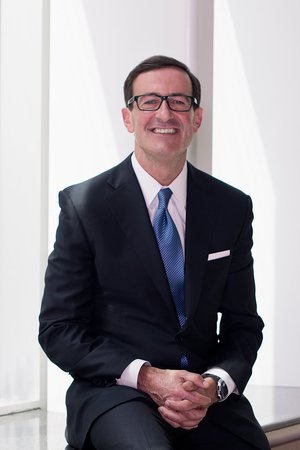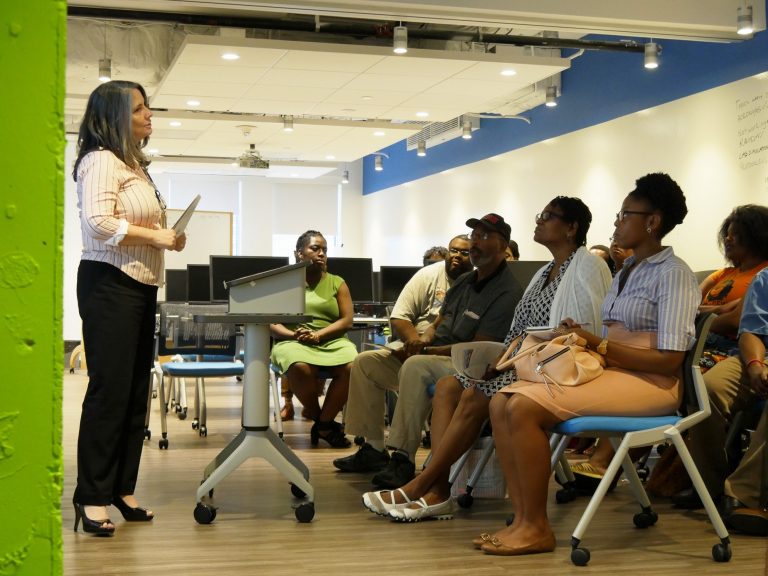When Betty Gebremariam, an Ethiopian immigrant, sought a new position in the US to support her family, she knew a few challenges lay ahead. Most of her work experience was in Ethiopia, and English was her second language. And, though educated at Admas College in Ethiopia, Betty had no United States based training or education. Her husband was employed, but with two children, the family still struggled financially.
Motivated and determined, Betty decided to focus her energy not only on getting a job, but on launching a career with longevity and financial security for her family. She knew that the IT industry was in-demand and saw many opportunities in the field, so Betty set her sights on a position as a help desk technician.
In February 2016, Betty turned to the Skillsource Group, a nonprofit organization that offers employment and training services to Northern Virginia area employers, job seekers and youth. The Northern Virginia IT Employment (NVITE) Partnership, led by Skillsource, was one of three grantees selected by The Community Foundation’s Workforce Collaborative to provide unemployed and underemployed low-income job seekers with intensive case management, employment coaching and skills training to launch or advance them into entry-level Information Technology living wage careers as Computer User Support Specialists.
That May, Betty started training at Northern Virginia Community College (NOVA) and earned a JAVA programming certification. Intellectual Point, a technology company in Reston, had an open position for a help desk technician. Betty’s case manager submitted her resume, now equipped with a new skillset, for the On-the-Job Training (OJT) opportunity, and Betty was hired after interviewing with the owner. She excelled and retained employment with Intellectual Point, earning $15 an hour.
“I am so grateful to Skillsource Group for assisting me in training and job placement. I am now starting my dream job path,” Betty says. “I have been energized to traverse the road ahead in success.” Betty adds her financial distress is gone, and remarks how patient and helpful Skillsource Group and her new employer Intellectual Point were in her journey.
The Workforce Collaborative congratulates Betty on her new career — Betty is the very first job candidate to graduate and achieve a job placement through the Collaborative’s Greater Washington Works initiative.
The Workforce Collaborative is a coalition of local workforce investors who share a common commitment to addressing poverty and income inequality by helping workers advance their skills and credentials so they can earn family-sustaining wages. Current Collaborative partners include The Community Foundation, the Morris and Gwendolyn Cafritz Foundation, Capital One, JPMorgan Chase & Co., the Consumer Health Foundation, Kaiser Permanente, the Eugene and Agnes E. Meyer Foundation, the Moriah Fund, Northern Virginia Health Foundation, the Weiss Fagen Fund, the Marian Osterweis Fund, United Way of the National Capital Area, and the Washington Area Women’s Foundation.
Greater Washington Works is a $1 million grantmaking initiative of the Collaborative designed to address local employer hiring challenges by meeting the talent needs of local IT and Healthcare employers. Greater Washington Works will support at least 250 local workers to launch living-wage careers in the IT and Healthcare sectors.
To learn more about The Workforce Collaborative, visit www.gwwdc.org.



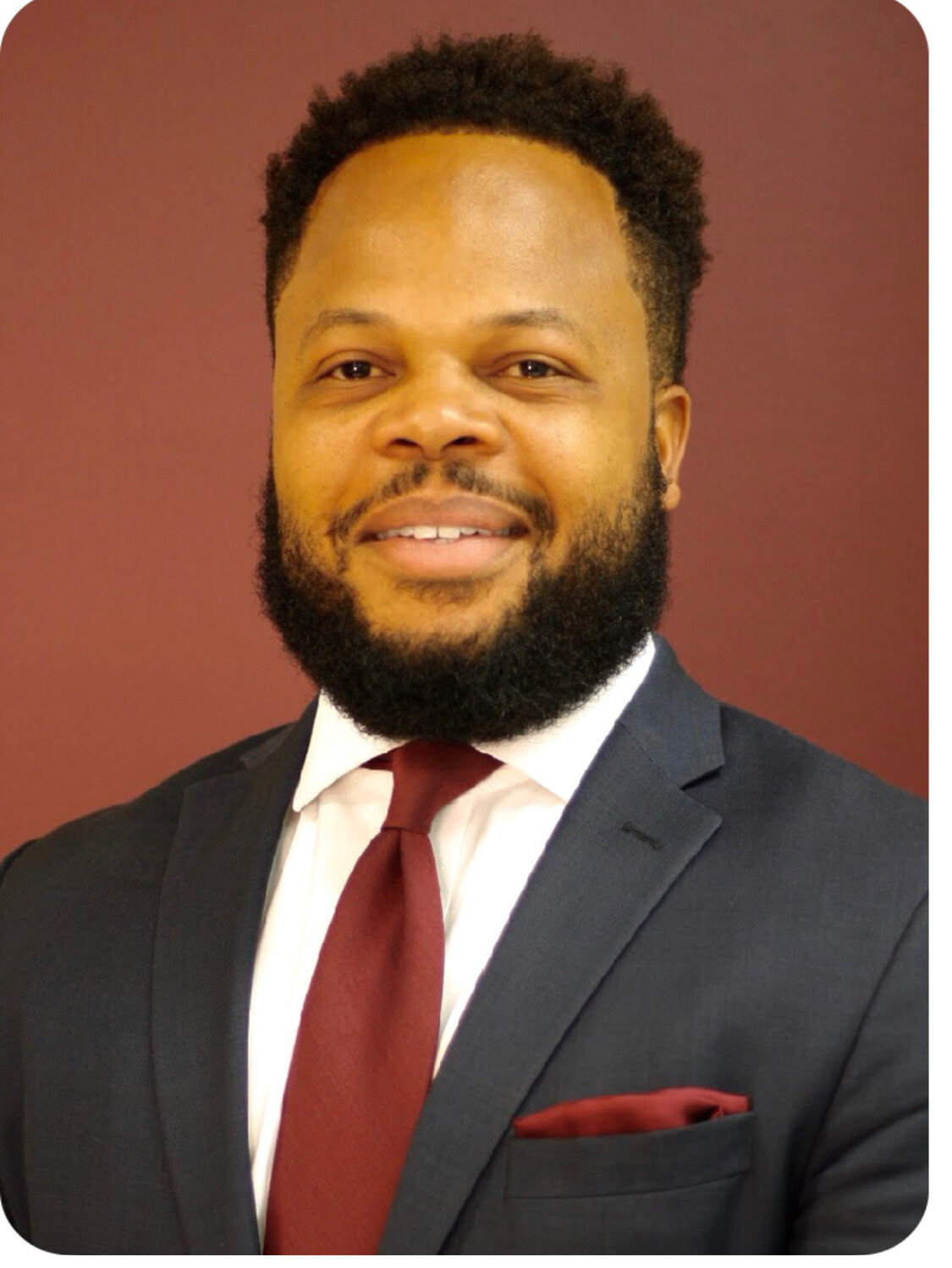


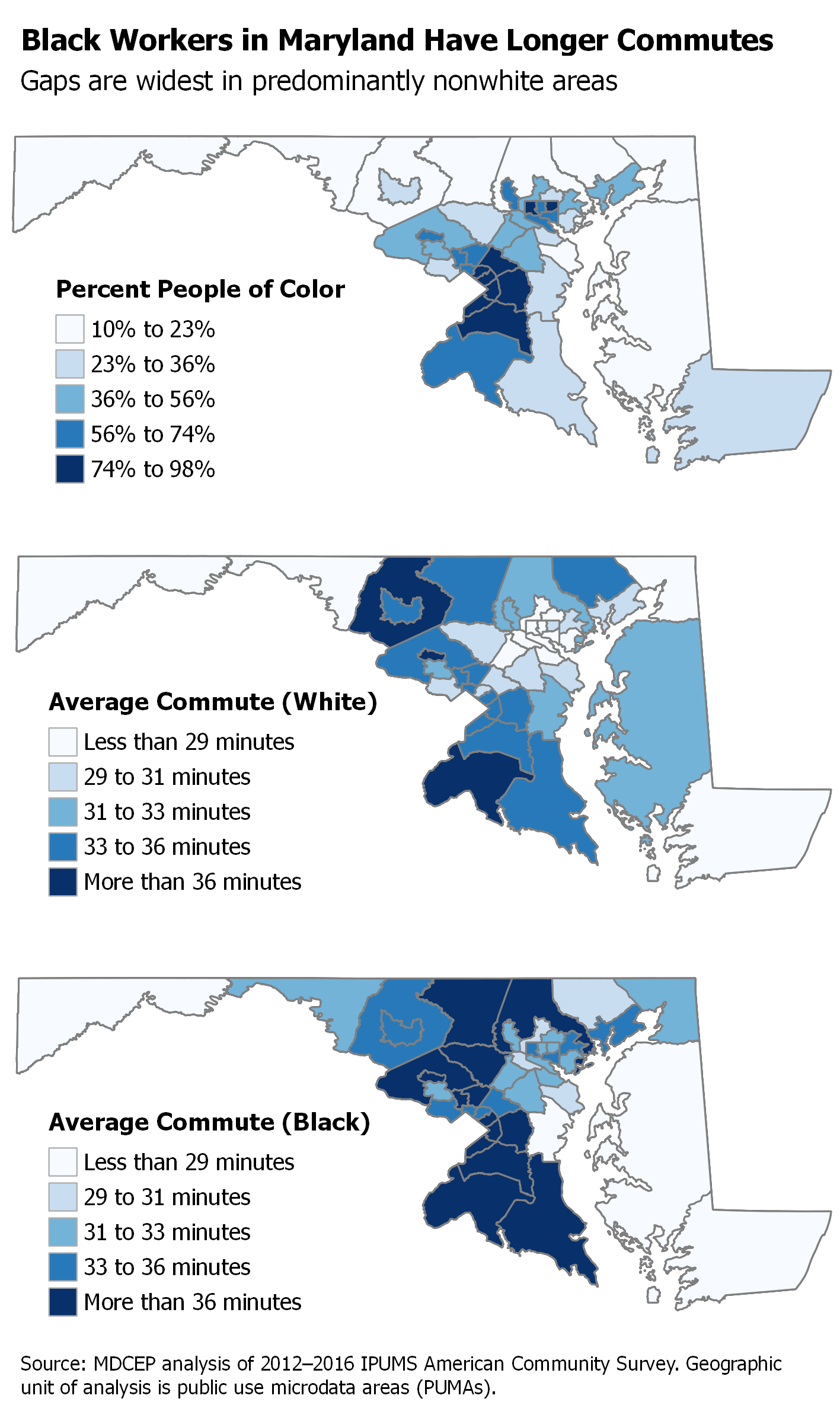
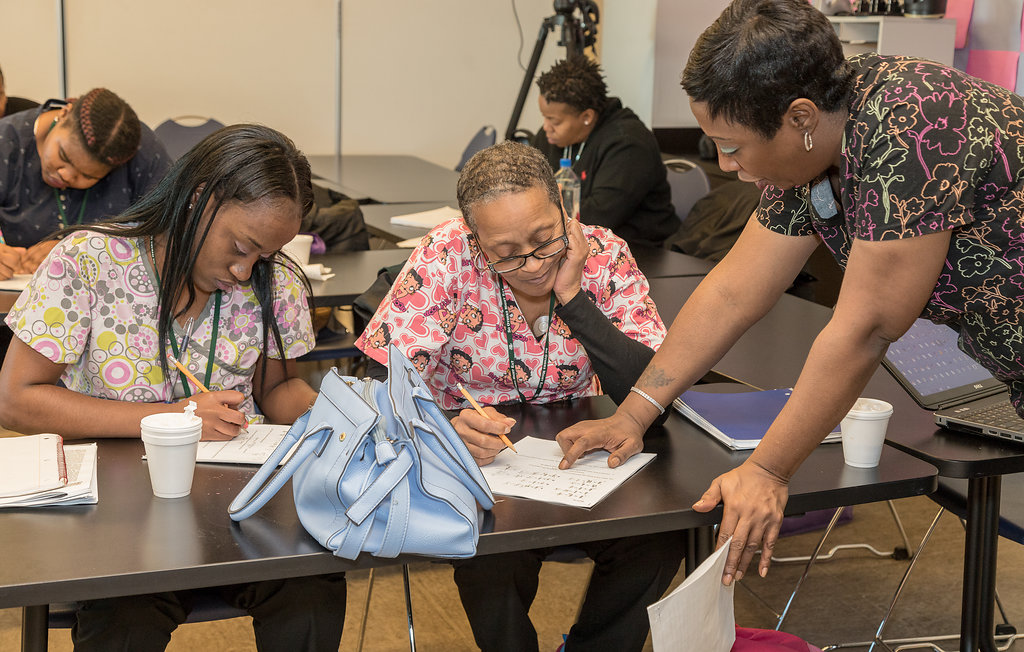
![School+at+Work+Students[2].jpg](https://images.squarespace-cdn.com/content/v1/58f791ec37c58188d411874a/1540581049324-JZJZAX4HMWWEZETX2DB0/School%2Bat%2BWork%2BStudents%5B2%5D.jpg)
